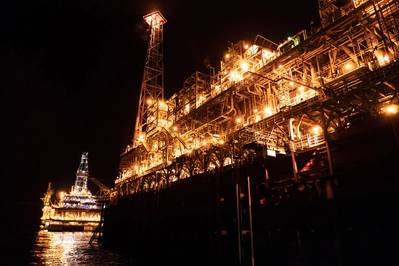Angola Seeks to Reduce Gas Flaring to Capture Revenue
Angola wants to cash in on the roughly 3 billion cubic feet per day of associated natural gas it produces, most of which is now flared, the petroleum minister said on Wednesday.
The announcement of efforts to generate more revenues by reducing gas flaring comes as Africa's second largest crude producer faces a fall in output from its mature oil fields.
"Over the years, Angola has somewhat neglected to capitalize on the natural resources that it has to offer," Mineral Resources and Petroleum Minister Diamantino Azevedo said in a brochure released at an African energy conference in Cape Town.
He said Angola produced about 3 billion cubic feet per day of associated natural gas, or gas found in association with oil in a reservoir.
"Much of this gas was burned or flared and an opportunity for financial recovery was missed, not to mention the damage that was done to the environment," he said, without giving the precise volume that was flared.
The U.S. Energy Information Administration (EIA) in June said Angola's total natural gas output in 2016 was 413 billion cubic feet, of which 254 billion cubic feet was flared, 88 billion cubic feet was reinjected and 60 billion cubic feet sold. The EIA cited figures from gas data firm Cedigaz.
Methane that leaks during oil production and CO2 generated when gas is flared are both greenhouse gases.
Angola is developing a $12 billion offshore project to produce 5.2 million tonnes of liquefied natural gas (LNG) a year for export. Angola LNG is a partnership of state-owned Sonangol, Chevron (CVX), BP, Eni and Total.
"We are in the process of leveraging other industrial projects for gas monetization, such as fertilizer factories," the minister said.
Angola's oil ministry said last year crude output could fall to 1 million barrels per day (bpd) by 2023 from 1.9 million bpd in 2008, unless there was fresh investment.
Under a deal on supply restraint agreed by the Organization of the Petroleum Exporting Countries, Angola said it was committed not to produce more than 1.6 million bpd of crude.
"The decline in production is the result of the natural process of field maturation and a lack of investment in resource research and preventative maintenance of equipment," Azevedo said.
To help address this, he said the government was offering onshore and offshore exploration blocks, including the "highly promising yet largely unexplored" interior basins.
(Reporting by Wendell Roelf; Editing by Tim Cocks and Edmund Blair)

